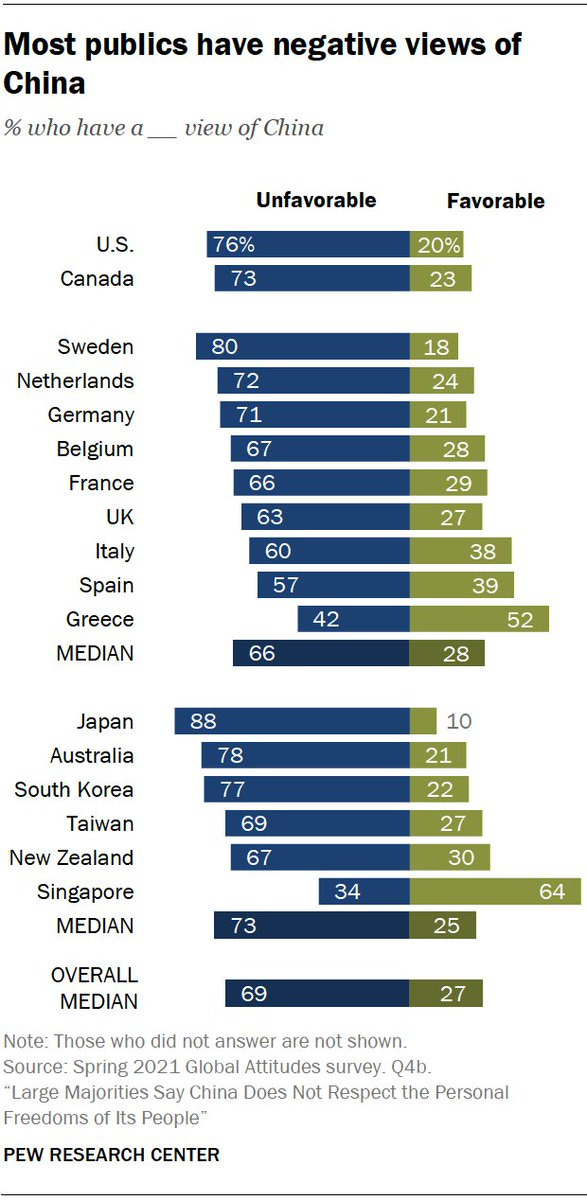Hey it’s Tim with a special holiday weekend Triad. JVL is back on Monday.
If you are anywhere on the political spectrum but are united with us in believing that the American democratic ideal is vital, requires preserving, and should be a signal to oppressed peoples the world over, we’d love to have you as part of the Bulwark family. Sign up today.
1. Refreshing our Recollections
Every Independence Day I like to “refresh my recollections” of a favorite passage on our nation’s founding. It is a short letter written by Thomas Jefferson, while on the cusp of death, expressing his view of the legacy of the Declaration on its semi-centennial. In it he offers a hope that in the future citizens of the world (some sooner, others later) will see this anniversary as a “Signal to burst the chains” and “assume the blessings and security of self-government.” You must read it if you haven’t.
When I first came across the letter a vicennial or so ago, I read it with the brash, patriotic exuberance of a young Republican. Each line called out for a chest thumping pride of country.
Jefferson’s audacious hope was coming to pass, thanks in large part to our national greatness. We were the benevolent empire. Spreading freedom the world over. Back-to-Back World War Champs and all that jazz.
Revisiting the letter during the Trump years was a different ball of wax. It left me depressed and despondent. My own party and country had tossed aside the notion that the American democratic experiment should be brought to foreign lands. We had installed a leader who was hostile to and cared nothing for the idea at the heart of our founding. Moreover, I was forced to reckon with the fact that most of my former Republican compatriots—who I had believed to be thumping their chest for the same reasons I was—were in fact happy to align with the chainers so long as their own individual grievance was quenched. So long as they could give a big middle finger to the real enemy: Their fellow Americans who were overly zealous in their quest for racial equity.
Looked at with fresh eyes today, on the first anniversary of our founding in the Biden era, I suspect I probably see the letter in a manner not far from how Jefferson did when he wrote it: as an aspiration. A wish. Something to work towards. A “grounds for hope.”
My fellow geriatric Millennials spent much of our lives watching the arc of history bend towards Jefferson’s ideal. The spreading of freedom and self-government, the general expansion of the light of science and the rights of man. It was all coming—to some sooner and others later—but it was coming. It felt preordained. And then, over the last decade or so, that view started to change. We realized that the booted and spurred saddlers were having another moment. This change caught many of us off guard.
And now the question we face is whether Jefferson’s vision is worth fighting for.
2. The Fall
Ben Rhodes, one of our country’s most prominent geriatric Millennials, is someone who has been confronting this experience and trying to shape the way our generation will address it as we come into political power.
He recently published a book, After the Fall: Being American in the World We Made, that is a quasi-memoir/quasi-polemic on the rise of anti-Democratic forces in the world and an analysis of what can be done about it. It was an unusually candid and raw reflection that addresses head-on the backsliding that occurred during a presidency that was supposed to represent history’s hope becoming reality. (To Rhodes’s credit, a staid D.C. tome written by a stuffed-shirt wonk who wants to be principal deputy secretary of State, this is not.)
As someone schooled in the conservative tradition, reading After The Fall, in one sense, recalls the classic tale of Irving Kristol’s liberal mugged by reality, with Rhodes as the muggee.
It would go something like this: A progressive wünderkind becomes the alter-ego and voice of an unlikely president. He then spends his time at the height of global power alternately enraptured in the narrative he had weaved about that president’s story and bogged down by the day-to-day trade-offs required to govern an unwieldy nation that is beset by crises of their predecessors’ making. As the years in power go by, the world begins to seem further from his grasp than when he got there. Some incremental progress is made, but the grand utopian ambitions which had been laid out at the start are not met.
The oceans do not recede. The peoples of the world do not topple their oppressors. The arc of human history does not bend to their will.
And then, as his time in the hot seat comes to a close, it happens: BAM. A sucker-punch to the jaw that catches him wholly off-guard. The regression he watched across the world hits home. His boss is succeeded not by another doe-eyed liberal dreamer, but by a revanchist, down-market Archie Bunker. And in this new administration, the role of Ben Rhodes would be played not by another aspirational Josh Lyman, but a white nationalist gollum and a smarmy, weasel-necked son-in-law.
This mugging sent Rhodes the world over to reflect and listen and try to come to grips with how things had unraveled so quickly. He reexamines his view of the fundamental viability of the democratic order. He becomes invigorated by conversations not with other young diplomatic strivers, but dissidents and freedom fighters who have experience waging guerrilla political warfare against totalitarian menace. He tells the story of Sandor Lederer and Mohamed Soltan and Alexei Navalny and Bao Pu skillfully, with relish—and with a hint of envy.
As the book progresses from one despotic hotspot to another, the lesson comes into focus. His story becomes not what the new nationalist conservatives might expect would result from Irving’s proverbial mugged liberal, but instead something more akin to the real life arc of Irving’s son Bill (a notion I’m sure would make Rhodes shudder).
He writes:
When you wrap your mind around the scale of the challenge to individual liberty posed by the Chinese Communist Party it’s easy to succumb to a sense of inevitability about the dystopia that lies ahead. But then I remind myself that people were equally certain, back in 1989, that the future would evolve in a particular direction, that America was ascendent and its model of democracy and open markets would inevitably prevail.
Amidst a book that rails against the failures of the American hegemony and blames those errors for some of the world’s current travails, the vital need for a revitalized small-L liberal American order becomes abundantly clear.
“If the U.S. abandons the field we are leaving it to China and Russia and that’s not a world any of us want to live in,” he told me when I called to ask Rhodes about the book and needle him about the neocon-adjacent subtext I was reading into it.
But from my vantage point, After the Fall makes it impossible to come to any other conclusion than this: for there to be any hope of a future where the blessings of liberty Jefferson hoped for manifest, then American leadership is the essential ingredient.
3. The World We Must Now Make
After The Fall comes at the time when it’s popular to treat the notion that America has some special responsibility outside our borders as a thing of the past.
On the extreme left the Greenwaldians argue we are no better than despots and that it is the American security state that is a pox on the world. Ilhan Omar lumps us in with the Taliban and Hamas. Even in a Biden administration that has been directionally an improvement, we are still abandoning Afghanistan and reluctant to employ pressure on Sisi, Lukashenko, and others, preferring to focus on the homefront.
On the right Trump has gone as far as to concur with the notion that America is no better than countries ruled by foreign despots. In defending Putin he once said, “you think we’re so innocent.” He and his minions have tarnished America by claiming that our elections are no better than the bunko fake-votes held by Latin American caudillos. Putin and Xi couldn’t have wished for a bigger favor.
Even the more traditional conservatives increasingly argue that we shouldn’t aim to advance freedom abroad. Let them live in their shithole countries. We are simply a nation-state with parochial interests no different than Benin or Bhutan or Belgium.
The logical conclusion of these mindsets is the dimming of America’s shining light and the abandonment of Jefferson’s wish, inviting instead the world to be made by others.
Rhodes offers a different path that might, hopefully, resonate with the more woke generation that wants America to acknowledge its demons, but doesn’t want to throw in with the despots. In After the Fall he writes, “you have to look squarely at the darkest aspects of what America is in order to fully, truly love what America is supposed to be.”
When we discussed this he argued for the importance of balancing this self-critique with a positive, forward-looking vision: “Today a big part of what Chinese are offering is this idea that they’ve figured out the future . . . and we need to show that we are the better bet for the future. In the Cold War, ultimately what mattered more is that more people wanted to live in the world that America led than in the kind of world that the Soviets led...We don’t have that advantage right now...I do think the people of Hong Kong put the lie to that by not opting in to the Chinese system.”
I’m sure that Rhodes is correct that among a certain kind of international elite and in some pockets of the world, China may be winning that argument. But a Pew poll this week shows they are far from convincing the general public.


The Swedes have this right.
And it’s abundantly clear that no matter our flaws, America remains the better bet for the globe.
Our democratic system was challenged, but it held. Our vaccines actually work. The government isn’t snuffing out political foes, except in Tucker’s hallucinations.
No matter how imperfect America is, we can and must be the “grounds of hope for others.” As After the Fall makes clear, the most likely alternative is a totalitarian dystopia that no one except the tankies and Adrian Vermeule want.
Given that, it is my request on this 4th of July, that those of us who share Jefferson’s vision be conscious of being a Signal. A signal to the world that we will be with those who want to overthrow the booted and spurred, the favored few.
A signal to our fellow Americans that the idea at the heart of our founding is righteous and cannot be abandoned.
4. Bonus Triad
If you made it to the end of the sermon I wanted to share with you some Summer tunes for dessert.
Every year I make a playlist for a BBQ or the pool or the windows down drives that is only the bops. Here’s this year’s rendition.
And of course my annual Independence Day Geaux America mix.
Happy 4th y’all.





